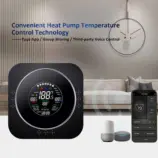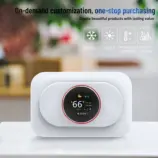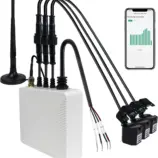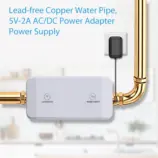In an era where sustainability meets innovation, harnessing solar energy, utilizing storage batteries, and leveraging the power of heat pumps have become quintessential for eco-conscious homeowners aiming to minimize their energy footprint while maximizing savings. This comprehensive guide illuminates the path to achieving unparalleled energy efficiency within your domestic realm.
Harnessing Solar Power to the Fullest
Solar panels, the vanguards of renewable energy, offer a gateway to reducing dependence on traditional power grids. Maximizing their potential involves strategic placement to ensure optimal sunlight exposure and considering factors like tilt angle and shading. Incorporating micro-inverters can further enhance efficiency by addressing the variability in output due to shading or debris.
Smart Storage: The Backbone of Energy Independence
Energy storage batteries are pivotal for a resilient home energy system. They store excess solar power for use during peak demand times or nocturnal hours, smoothing out energy availability and reducing reliance on the grid. Opting for lithium-ion batteries offers a balance between longevity and performance, ensuring your energy reservoir is both durable and efficient.
The Heat Pump Advantage: Efficient Heating and Cooling
Heat pumps stand out for their ability to provide energy-efficient temperature control. By extracting heat from the air or ground, they offer a sustainable alternative to traditional HVAC systems. Seasonal adjustments and regular maintenance are key to sustaining their efficiency, with the potential to significantly cut down on heating and cooling expenses.
Integrating Systems for Seamless Energy Management
The synergy between solar panels, storage batteries, and heat pumps can be amplified through smart integration. Home energy management systems (HEMS) play a crucial role, allowing homeowners to monitor and adjust energy usage in real-time. This intelligent coordination ensures that energy production, storage, and consumption are optimized for both efficiency and cost-effectiveness.
Navigating Incentives and Financing for Energy Upgrades
Investing in these technologies is financially savvy, thanks in part to various government incentives and rebates designed to lower the upfront costs. Tax credits, rebates, and financing options can make sustainable upgrades more accessible. Familiarizing yourself with these incentives can significantly offset the initial investment, accelerating the return on investment.
Embracing solar panels, storage batteries, and heat pumps is not merely an investment in your home but a commitment to a sustainable future. By adopting these strategies, homeowners can enjoy the dual benefits of lowering their carbon footprint and reducing energy expenses. As we advance towards a greener horizon, the integration of these technologies paves the way for a more resilient and efficient home energy ecosystem.
FAQs
- How do solar panels contribute to energy efficiency? Solar panels reduce reliance on non-renewable energy sources, providing a clean, sustainable power supply that can significantly lower electricity bills.
- Why are energy storage batteries important? They ensure the uninterrupted availability of solar energy, enabling households to use stored power during peak times or when solar production is low, thus enhancing energy self-sufficiency.
- What makes heat pumps an efficient choice for homes? Heat pumps utilize the ambient air or ground temperature to heat or cool spaces, offering a more energy-efficient solution compared to traditional HVAC systems.
- Can integrating these systems really save money? Yes, by managing energy production, storage, and consumption efficiently, homeowners can significantly reduce their energy bills while benefiting from a continuous power supply.
- What should homeowners know about government incentives? Many governments offer incentives for renewable energy installations, such as tax credits and rebates, which can help reduce the overall cost of solar panels, batteries, and heat pumps.



